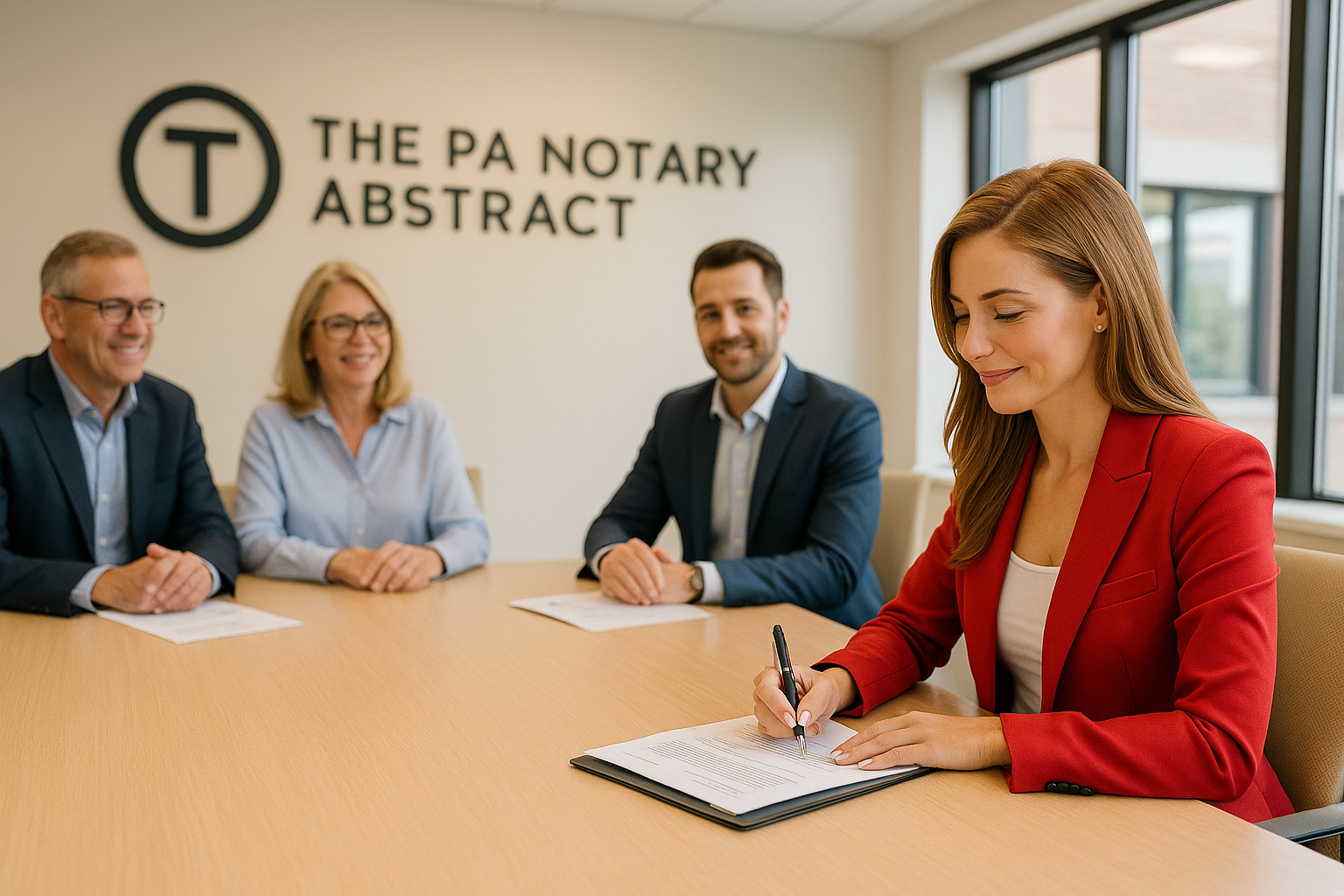If you’re serious about becoming a high-earning loan signing agent in Pennsylvania, there’s one skill that separates the pros from the part-timers: document mastery. Whether you’re working closings in Pittsburgh, Norristown, or bouncing between walk-ins in Bucks County, the ability to calmly present and organize loan documents—without getting flustered—is the reason clients call you back.
This guide breaks down the 10 most important documents you’ll encounter in refinances, purchases, HELOCs, and reverse mortgages. If you want to be seen as the go-to professional at the closing table, start here.
1. The Promissory Note
The borrower’s official promise to repay the loan. Includes amount, interest rate, and due dates. Signed—but not notarized.
🔥 Hot Tip: If they ask what happens if they default, say: “I’m here as a notary, not a loan advisor. Let’s contact your lender together if needed.”
2. The Mortgage (Deed of Trust)
This document secures the loan against the property. It’s one of the most commonly notarized documents in every closing.
🔥 Hot Tip: Double-check the notary block. In Pittsburgh, a missed stamp means a delay that could kill funding.
3. Closing Disclosure (CD)
Outlines final loan terms, cash to close, monthly payments, and fees. Borrower signs and dates every page.
🔥 Hot Tip: If the borrower sees differences from their Loan Estimate, refer them to their LO—not your opinion.
4. Right to Cancel (RTC)
Appears in refinances and HELOCs. Grants borrowers 3 business days to cancel. You’ll often handle 2–3 copies.
🔥 Hot Tip: Triple-check the date. It should be the signing date, not the rescission deadline.
5. Uniform Residential Loan Application (1003)
Shows income, employment, debt, and assets. Usually re-signed at closing to confirm no changes.
🔥 Hot Tip: Know where to direct clients who spot errors—they’ll appreciate you even more.
6. Compliance Agreement
The borrower agrees to fix clerical issues post-closing if needed. Often signed—not notarized.
7. W-9 and IRS Form 4506-C
Verifies tax ID (W-9) and authorizes lenders to pull tax transcripts (4506-C). Simple, but important.
🔥 Hot Tip: Make sure the name matches exactly what’s on the ID or docs will bounce back.
8. First Payment Letter
Tells borrowers when and how much to pay. It’s not notarized—but it’s often the doc they care about most.
9. Title Affidavits and Occupancy Statements
Includes ID affidavits, marital declarations, and primary residence affirmations. Almost always notarized.
🔥 Hot Tip: Use a folder just for notarized docs. It’s a habit that saves careers.
10. HUD-1 or Settlement Statement (Specialty Closings)
While replaced by the CD in most deals, HUD-1s still appear in reverse mortgages, hard money, or cash deals. Know how to handle both.
💰 What You’re Really Getting Paid For
You’re not being paid to “stamp a document.” You’re being paid to manage the room, protect the process, and walk borrowers through complex paperwork without confusion, panic, or error. That’s why trained notaries in Pittsburgh, Wilkinsburg, and the South Hills can consistently earn $150–$250 per appointment.
🎓 Ready to Learn These Docs by Heart?
The PA Notary Verified Signing Agent Training walks you through each of these documents page-by-page with video walkthroughs, printable flowcharts, and cheat sheets—so you can close confidently.
Free Bonus Book Included: Every student gets a copy of “The PA Notary’s Guide to Making Money with Loan Signings.”
- 42 pages of document walkthroughs
- Notary block guides and “what to say” scripts
- PA-specific language for title and escrow
→ Enroll now and become the most document-savvy notary at the signing table.
The PA Notary Takes You From Notary Commission To Cashflowing Career.




